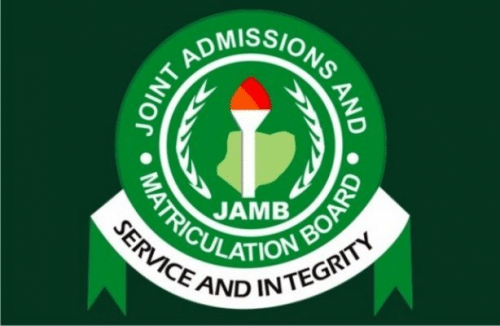Multiple accounts regularisation deadline & forfeiture

31st December 2017 represents an important date in Nigerian capital market. The date has been fixed by the Securities and Exchange Commission (SEC) as deadline for free –dividend mandate registration and also deadline for multiple account regularization.
Investor usually buy shares in the capital market either from the primary market or the secondary, market, it is ideal to understand primary and secondary market, multiple account and e-dividend mandate registration.
Primary market
The primary market is where securities are created. It’s in this market that firms sell (float) new stocks and bonds to the public for the first time. For our purposes, you can think of the primary market as the market where an initial public offering (IPO) takes place.
IPO
According to Investopedia, Initial public offering (IPO) or stock market launch is a type of public offering in which shares of a company usually are sold to institutional investors that in turn, sell to the general public, on a securities exchange, for the first time.
Through this process, a privately held company transforms into a public company. Initial public offerings are mostly used by companies to raise the expansion of capital, possibly to monetize the investments of early private investors, and to become publicly traded enterprises.
A company selling shares is never required to repay the capital to its public investors. After the IPO, when shares trade freely in the open market, money passes between public investors.
Secondary market
The secondary market, also called the aftermarket, is the financial market in which previously issued financial instruments such as stock, bonds, options, and futures are bought and sold.
Understanding the primary market
In the primary market where IPO is offered to investors ,details of the proposed offering are disclosed to potential purchasers in the form of a lengthy document known as a prospectus.
Most companies undertake an IPO with the assistance of an investment banking firm acting in the capacity of an underwriter.
Underwriters provide several services, including help with correctly assessing the value of shares (share price) and establishing a public market for shares (initial sale).
Alternative methods such as the Dutch auction have also been explored. In terms of size and public participation, the two most notable examples of this method is the Google IPO and Snapchat’s parent company Snap Inc.
China recently emerged as a major IPO market, with several of the largest IPOs taking place in that country.
What is multiple registration?
When the Nigerian capital market was buoyant with increased number of retail local participants, IPOs are usually greeted with over subscription and in most cases funds are returned to some investors who were not given share allocation.
Yet some investors instead of buying with one IPO form, went ahead to apply or share subscription with different forms bearing different names. In some cases, the names are similar, while in other cases they names are dissimilar.
With the e-dividend registration and the Bank verification number, it was discovered that many shareholding accounts are traceable to one name, or account number even as they bear different names.
The need to harmonize this discrepancies informed the multiple accounts regularization initiated by the Securities and Exchange Commission (SEC).
Multiple account regularisation committee
The Securities and Exchange Commission, SEC set up a committee to fix the deadline for account consolidation by investors who have multiple accounts which were part of the reasons why unclaimed dividend had risen to over N90 billion.
The committee is also expected to address all other issues of multiple accounts by investors. “A committee has been set up as I said, we are working out the modalities;
how a period of grace will be given to all investors who fall into this category so that they can amalgamate their accounts to sanitise the system” SEC DG said.
The committee came out with the relevant information which was presented to SEC, and this informed the grace period given by the market regulator for harmonization or regularization of multiple accounts.
Account consolidation
Investors in the capital market who have multiple accounts in the system, through accounts consolidation, are made to fuse them into a single account.
“The SEC has set up a committee to look into the issues of multiple accounts and they are expected to recommend measures toward tackling the issues.” Mr. Joseph Mekiliuwa of the CSCS told Daily Times
The account consolidation exercise encourages require shareholders to consolidate their accounts, hence it is better and cheaper to maintain fewer accounts for ease of tracking investments.
How multiple accounts come about?
The SEC DG, Mounir Gwarzo TOLD Daily Times at the last CMC meeting in Lagos that multiple accounts usually arise from Initial Public Offering / Public Offering (IPO/PO) during which some investors applied for the IPOs by switching their names or using different variations of their names to acquire shares to beat the system that has placed a cap to every investor’s allotment.
“Sometimes, non -natural person’s names were used in different permutations with the implication that such accounts would become orphan accounts not tied to any living nor dead persons.
So, in the wisdom of SEC, NSE and CSCS and other stakeholders, a committee was set by SEC involving all stakeholders to work out the modalities for resolving such issues” a member of the committee said.
How to regularize multiple accounts
To regularize multiple accounts, there are some relevant documents that would be required for evidence of purchase of the shares during the IPO. If possible, the photocopy of the IPO forms submitted at a point of purchase would be required.
Usually the investor submits the original form, but expected to be proactive by doing photocopy and perhaps sworn affidavit that you actually bought the shares at a time mentioned.”
Why multiple subscription holders may lose their investment
The Securities Exchange Commission (SEC) recently warned investors in the Nigerian Capital Market with multiple subscriptions, that they may forfeit their investment.
According to a circular from the SEC, “the Nigerian Capital Market cannot and should not be seen to reward the wrongful acts/illegality of the perpetrators.
This was with a view to ensuring the global sustainability of the Nigerian Capital Market’s integrity and reputation”
The Circular observed that one major source of unclaimed dividend remains the use of non-existent identity to make multiple subscriptions to public offers.
The Committee unanimously agreed that the action of submitting Multiple Applications for the same Public Offer was, in every consideration, illegal.
Also it was agreed that the wrongful acts were carried out, by the perpetrators, under false pretense, describing two groups of investors involved in multiple subscriptions.
In the first group, according to the report, investors actually existed but joggled their names in different forms to enable them purchase more than the permitted units of shares on offer,
while, the second group was the class of investors that did not actually exist but used fictitious names for the purpose of purchasing more than the permitted number of shares during public offers.
The report agreed that both groups had fraudulent intentions and their actions were collectively illegal.










